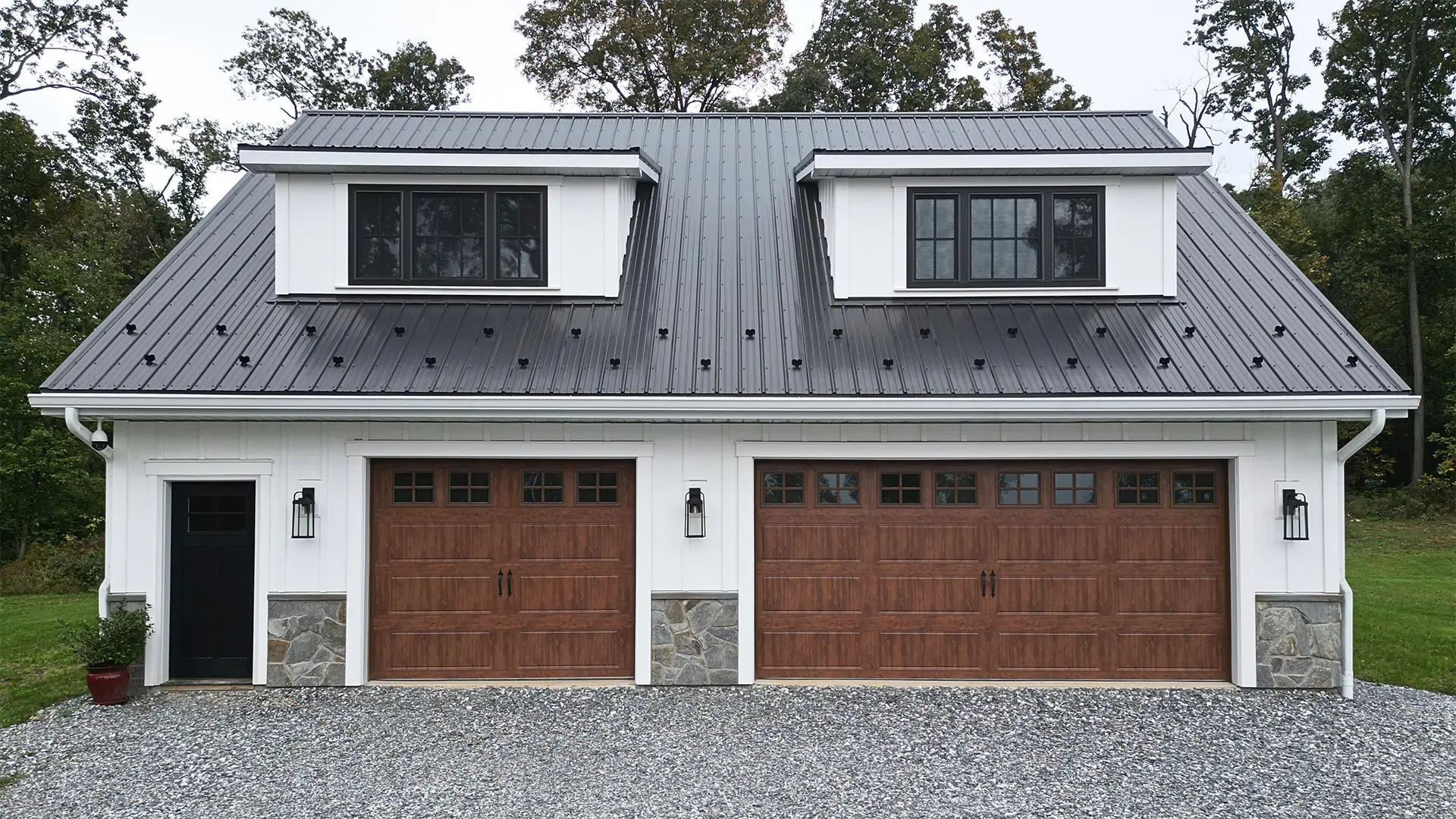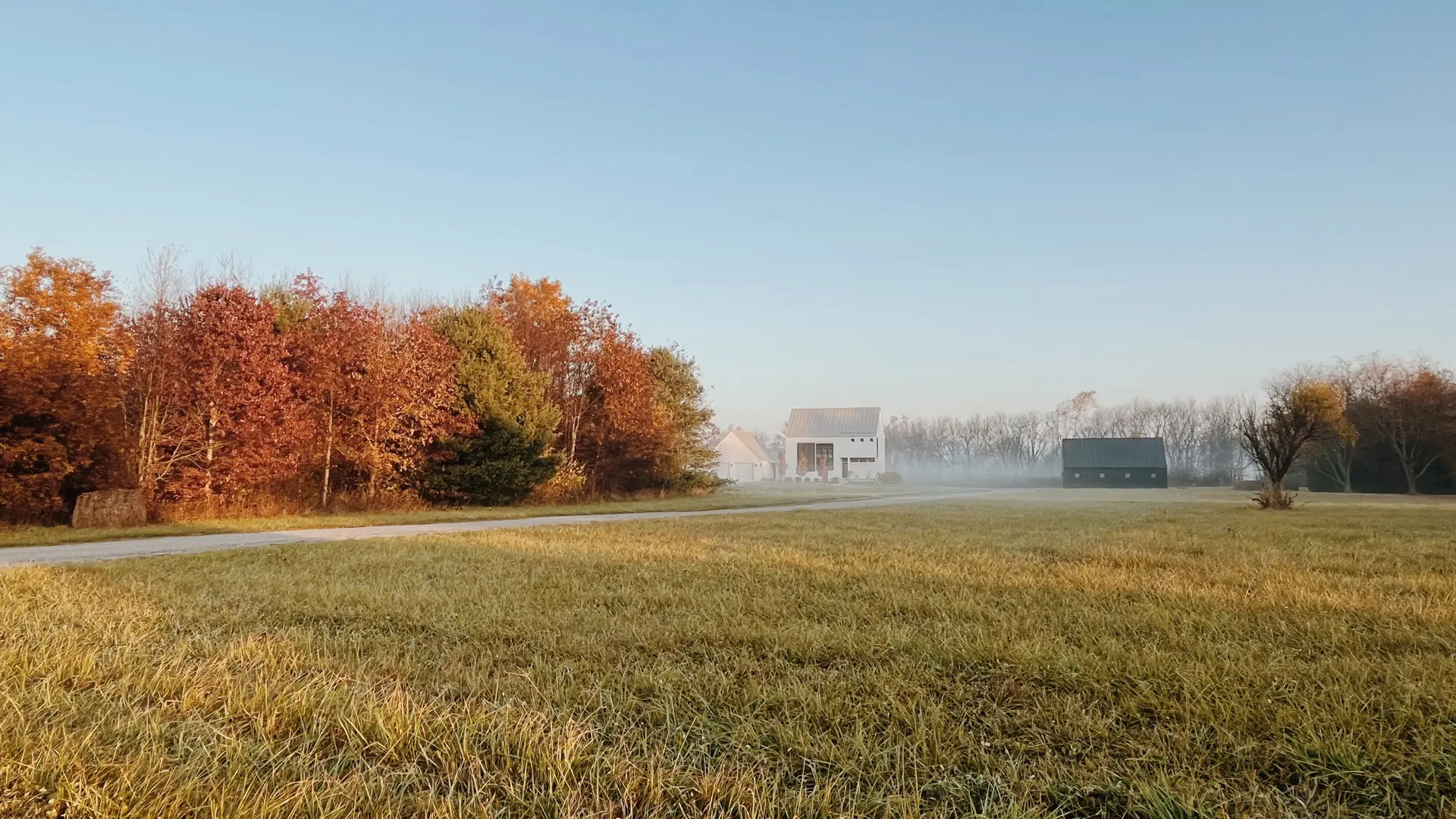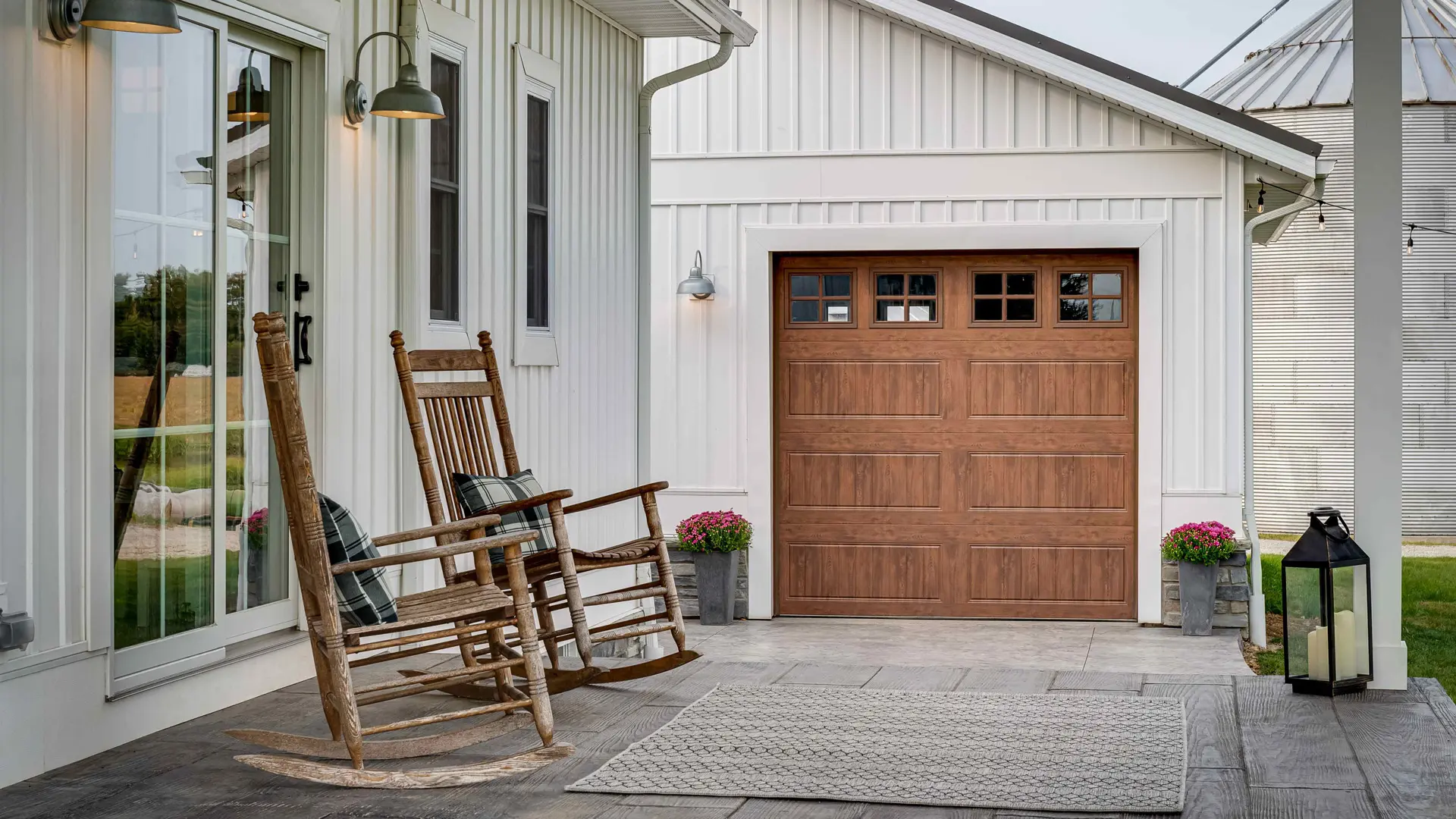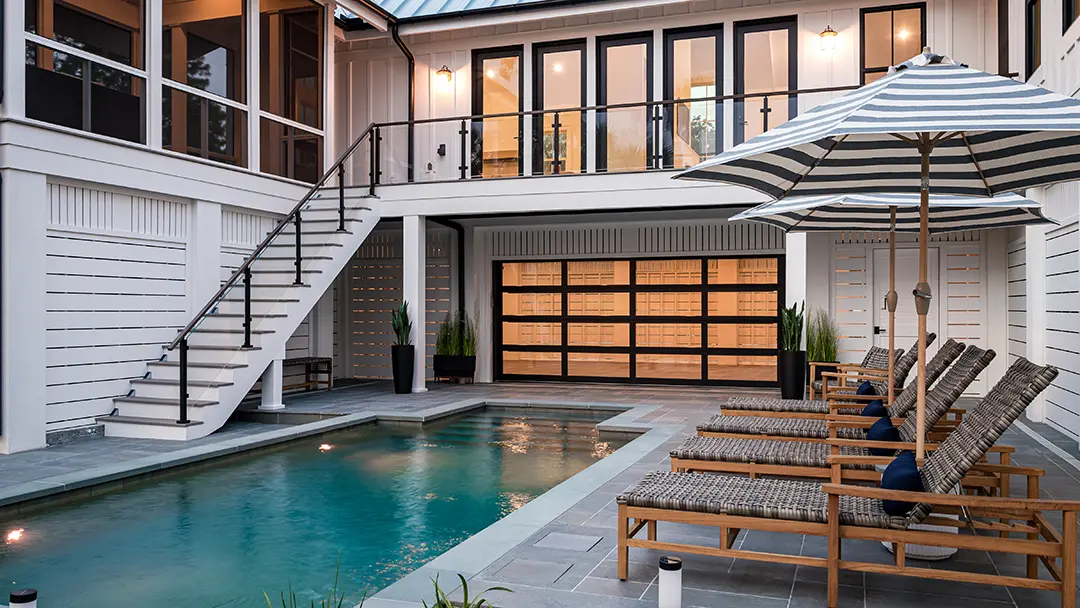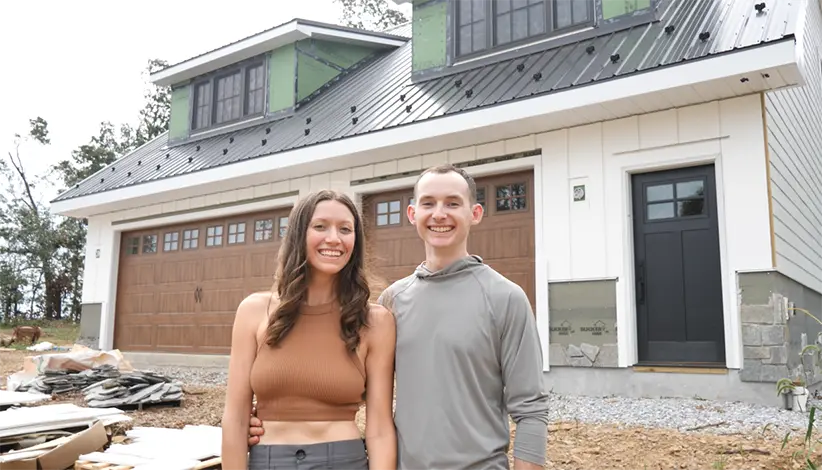
Newlyweds Alex and Elaina have been living in a 26-foot RV while they build a debt-free, high-performance home on acreage in the Northeast. They have designed everything themselves with building science in mind, focusing on water management, airtightness, insulation and indoor air quality. They are doing the majority of the work themselves to save money that goes towards purchasing materials.
To keep costs in line, they had to build their dream home in two stages: first, a garage apartment followed by a future main house addition.
The couple left their corporate jobs and are now full-time content creators, documenting their journey on Instagram and YouTube as @masondixonacres. We’re checking in on the progress as the garage apartment nears completion.
What inspired you to build your own home?
We began looking at homes in 2018-2019 and couldn’t find one that fit our needs. We wanted acreage so we changed our mindset and started searching for land instead, and wondered, ‘How hard could it be to build your own house?’ We couldn’t afford to hire a custom home builder so we decided to act as our own general contractor.
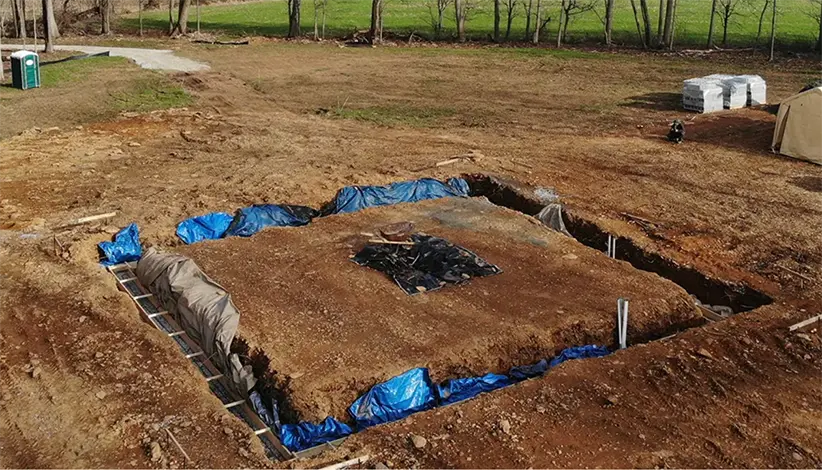
Footing
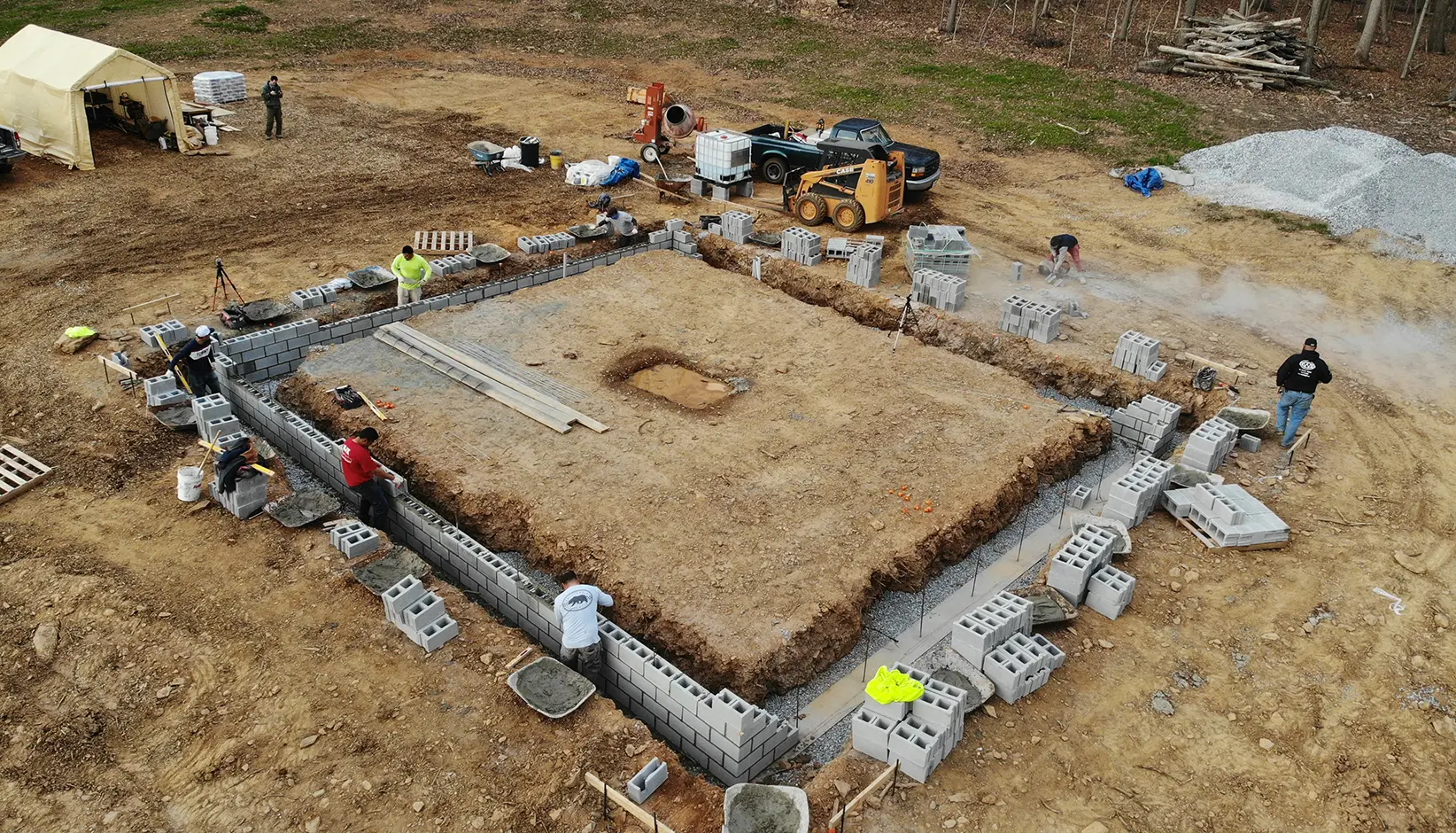
Foundation
Do you have experience in home building and construction?
Neither of us had formal experience with home building or residential construction but we are both engineers so we had experience managing technical projects and working with contractors.
Did you design the garage yourself or purchase a plan?
Alex put his CAD modeling experience from engineering to use and designed our house using residential architecture software. We hired a structural engineering company to review the plans.
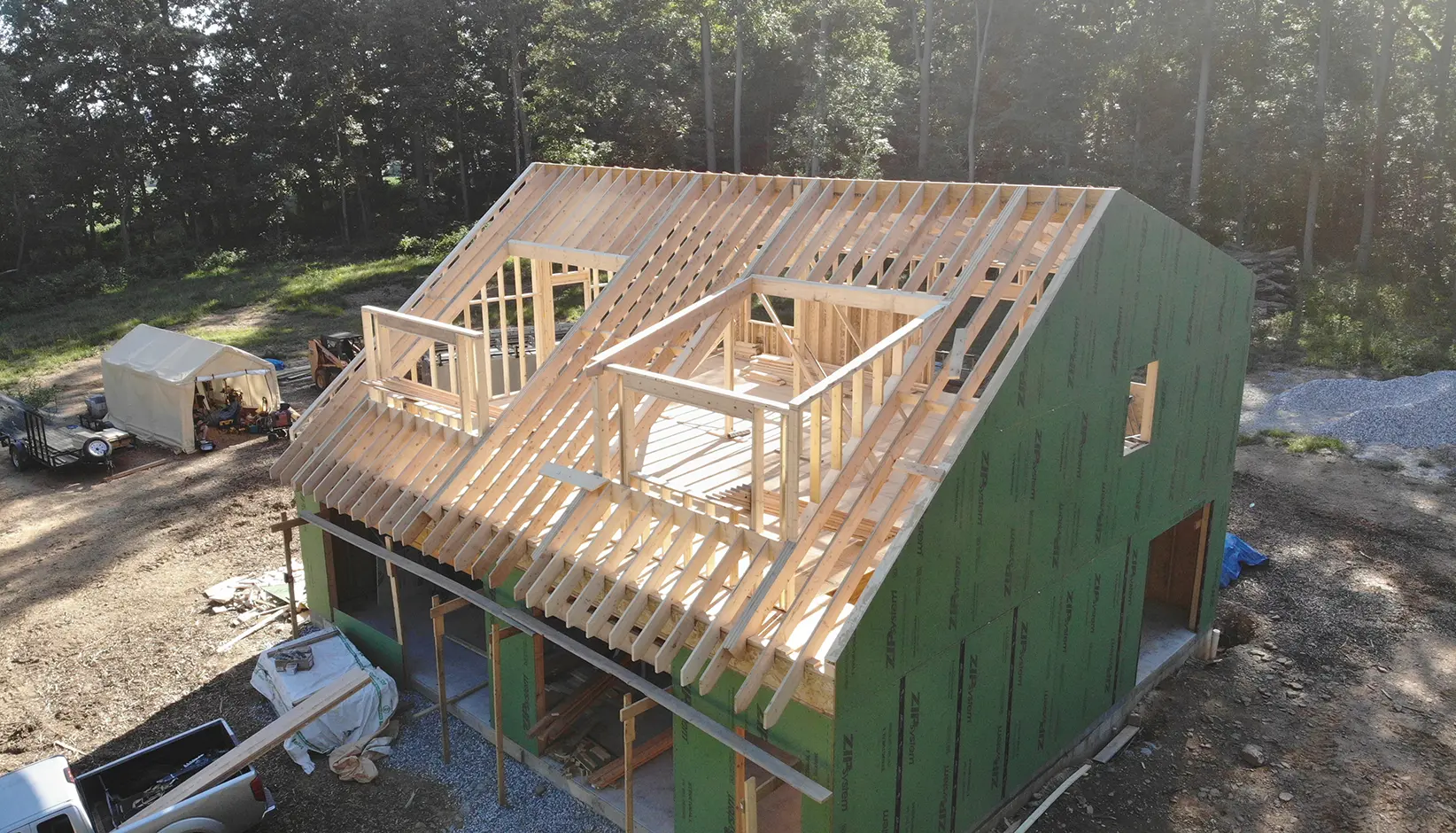
Framing
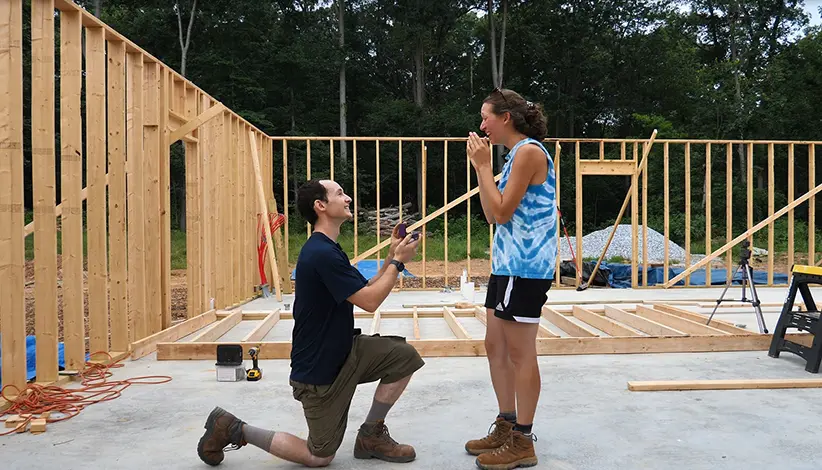
Alex proposed to Elaina on the foundation of their new home.
How did you balance full-time jobs with building?
The first year we kept our 9-to-5 jobs while working on the house as weeknight and weekend warriors. For larger projects like framing, we took off a couple weeks of vacation at a time.
Had you ever bought garage doors prior to this project?
No, this was our first-time buying garage doors.
What criteria were important to you when you were looking at garage doors?
Aesthetics, functionality, and price were the most important factors. The two doors on the front of the garage apartment are a prominent design feature, so we wanted something more than a basic white door. Our home style is a mix of modern and traditional farmhouse. We wanted insulated doors with windows to fit the timeless farmhouse look and complement the white siding, gray stone, and black roof.
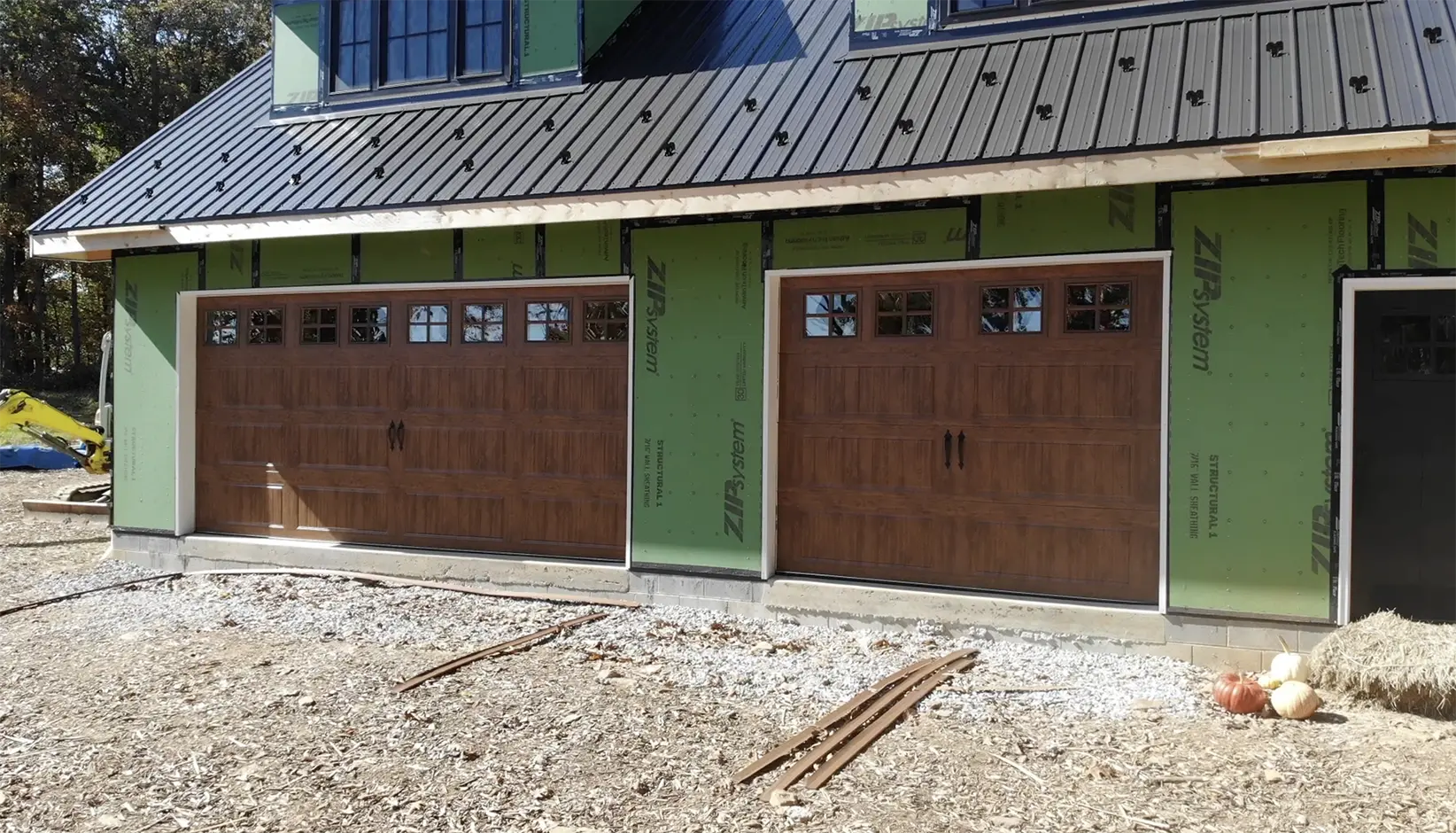
Clopay Gallery Steel garage doors with Dark Oak Ultra-Grain finish.
Why did you choose Gallery Steel doors with the Ultra-Grain finish?
The doors checked all the boxes. We love the warmth of the Dark Oak color. The great thing about the doors being steel rather than wood is that they are more energy-efficient and don’t have the upkeep of wood doors. The wood grain is incredibly realistic and the garage doors are one of the most complimented features of our home!
The garage doors have been installed for a couple of years now, while construction has been going on. How do you feel about their durability/appearance after putting them through their paces on a working construction site?
We are extremely impressed with the durability and finish quality. A small tornado hit our property last summer, damaged part of the siding. The garage doors had only two small dents from the storm that we didn’t even notice until a contractor pointed them out to us a year later. The wood-grain finish and textured steel hides them in 95% of lighting situations.
Would you approach the project the same way – starting with the garage first – if you had to do it again?
Definitely! First, having a garage space to store materials and work inside is a huge benefit. We can take lessons learned from this build and incorporate them into our future projects.
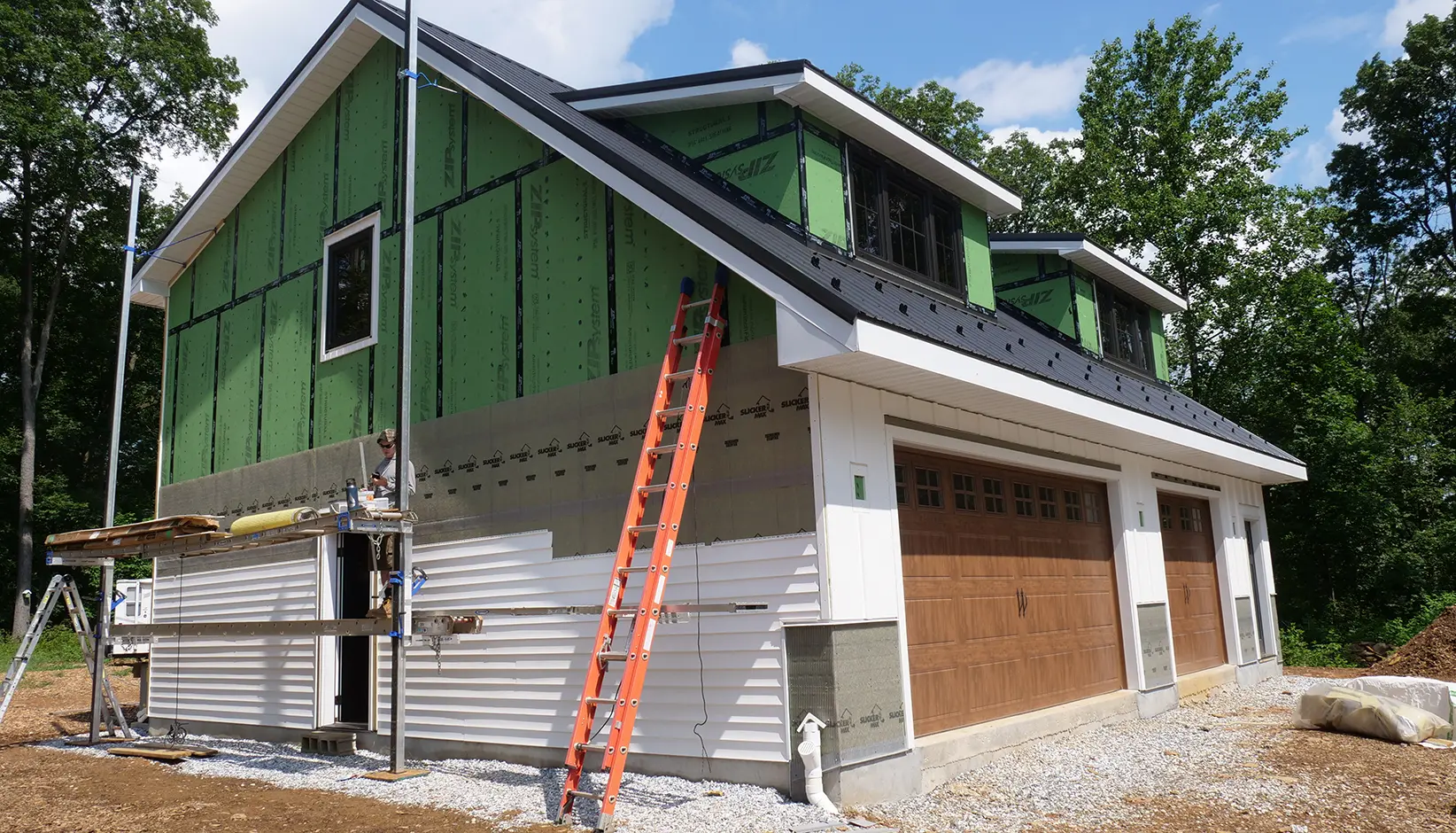
Would you still make the same exterior design choices that you started with? Any buyer’s/designer’s remorse?
We absolutely love our exterior design choices, there’s nothing we would change. We spent a lot of time 3-D modeling and visualizing the house exterior design and evaluating all of the options. High-end exterior materials like prefinished fiber cement siding, triple-pane windows, 50-year metal roofing, natural stone veneer, and three wood-grain finish garage doors are not cheap, so we wanted to make sure we considered every option so we could be confident with each decision.
You’ve been through multiple seasons as you’ve been building. Has the garage door insulation made a difference in the comfort of the space while you’ve been working? Do you feel like insulation is worth the extra cost investment upfront?
It is absolutely worth the investment, regardless of climate. Our climate has hot summers and cold winters, and having a thermal break on the garage doors makes a big difference inside the garage space. Since we’re conditioning the garage with radiant floors and mini splits, insulated doors were really non-negotiable in our case. However, even before we had heating or cooling, the doors served as an excellent way to temper the space, especially because they account for about 20% of the wall area.
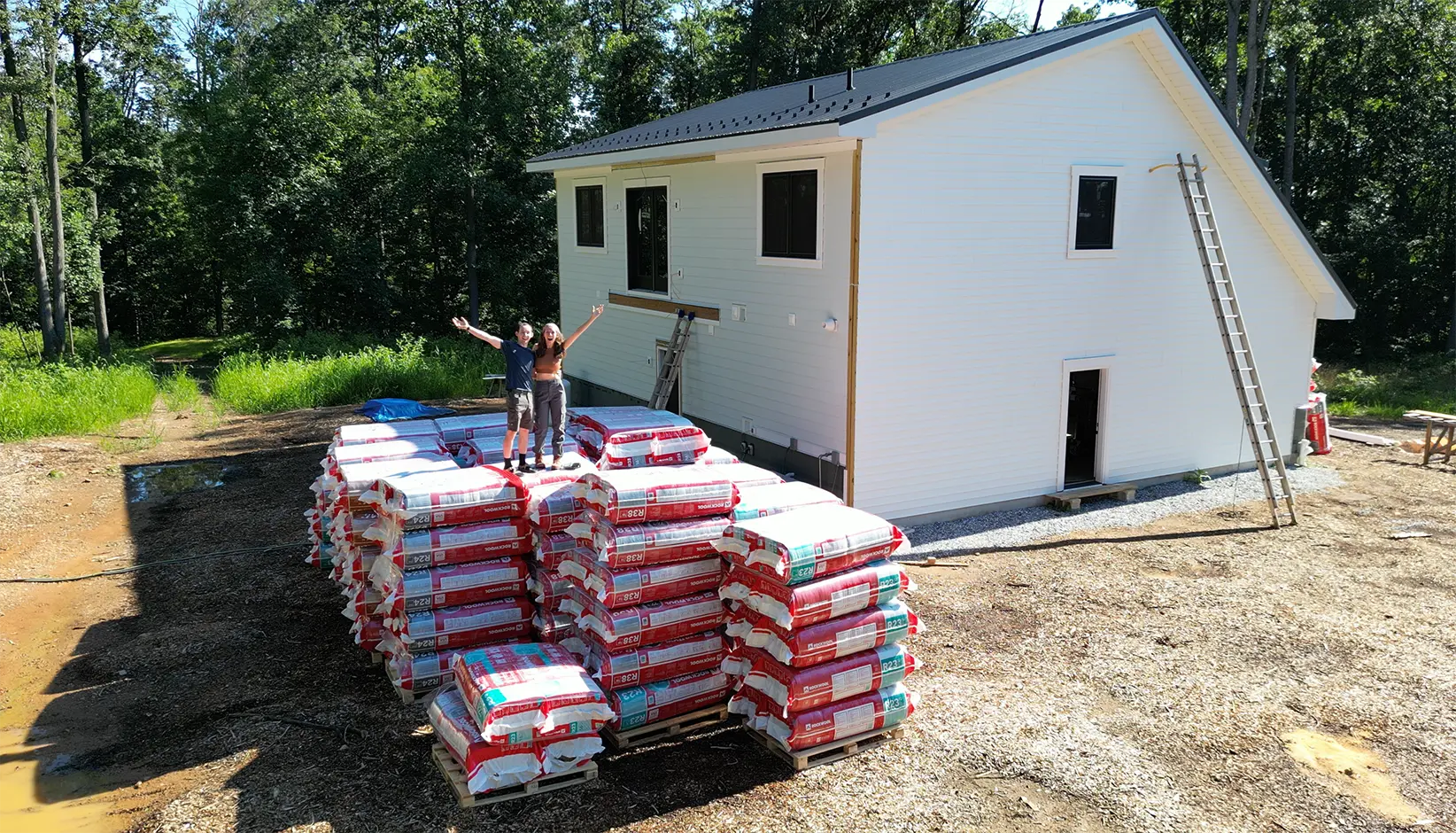
Standing on a mountain of insulation.
How long do you plan to live in the garage apartment before you begin work on the house?
We designed our apartment so that we would have some space to grow into it. We don’t have a firm timeline for the larger house addition but hope to start on it within the next 5 to 8 years.
You have been documenting the building/homesteading process on Instagram and YouTube, which adds another layer of work and complexity. How do you find time and maintain energy to create content?
We both are passionate about sharing and documenting the journey, so we make time. Planning, filming, and editing videos for YouTube and Instagram takes a combined 2-4 days per week. Making videos is about half of the project! It is a great way for us to be creative and allows us to connect with other like-minded people.
What would you say has been the biggest ah-ha moment about this process?
The cost savings and quality control by taking on projects ourselves has probably been the biggest lesson learned. No one will care as much about your project as you do, at least for us meticulous engineering types. If you can manage to find someone who does care as much as you, be prepared to open your checkbook in a big way. When it comes to planning, it’s important to look ahead to the other trades so that you save yourself future headaches by thinking about what is required for the next phase of the project.
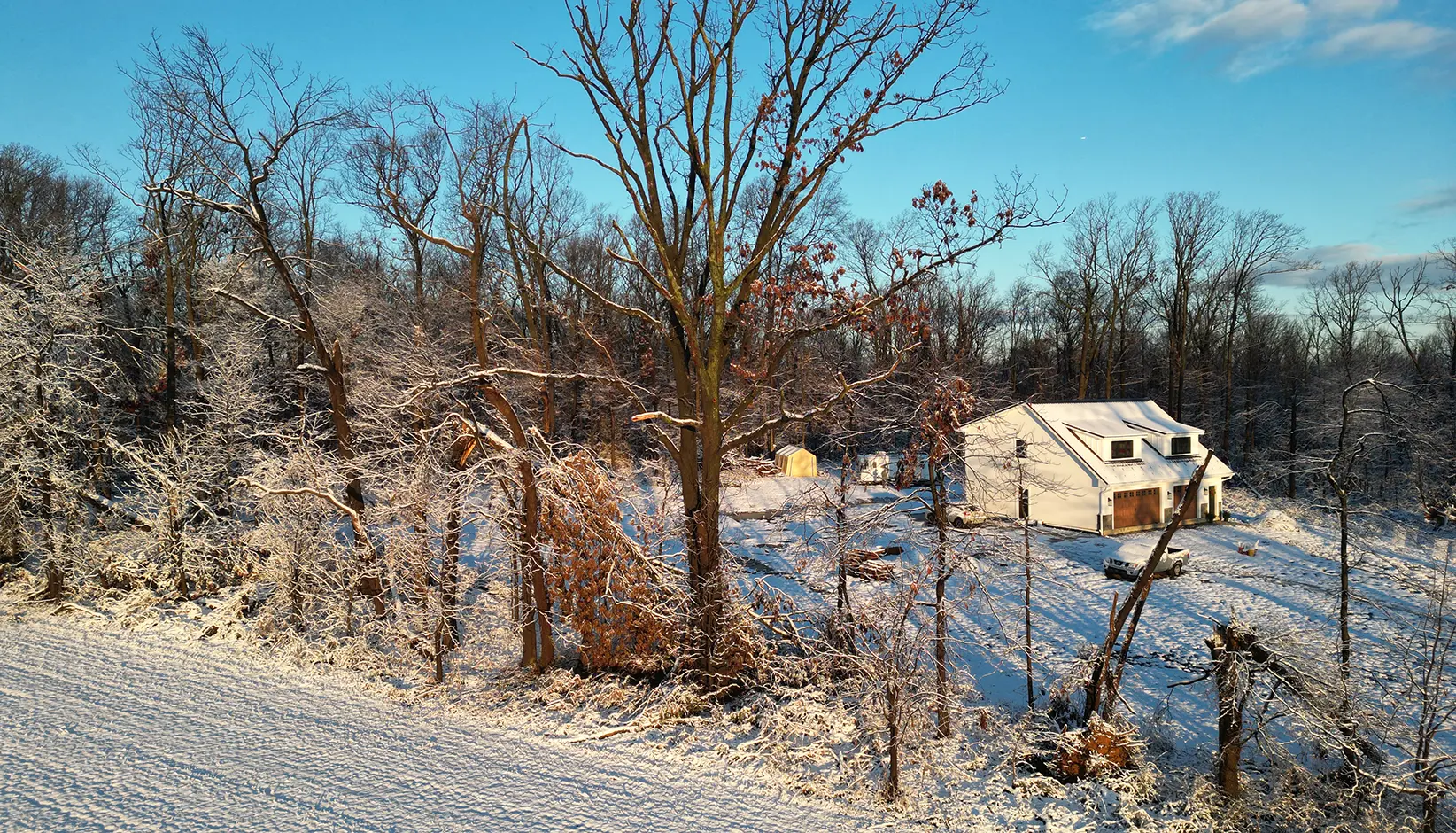
Home sweet home
Where can people tune in to follow the build and learn from the projects you’ve already shared?
There are 100+ long-form videos in the “Self-Building Our Home” playlist on our YouTube channel (Mason Dixon Acres) and over 500 short-form videos on Instagram and Facebook (@masondixonacres). We have project plans and resources on our website, masondixonacres.com.

